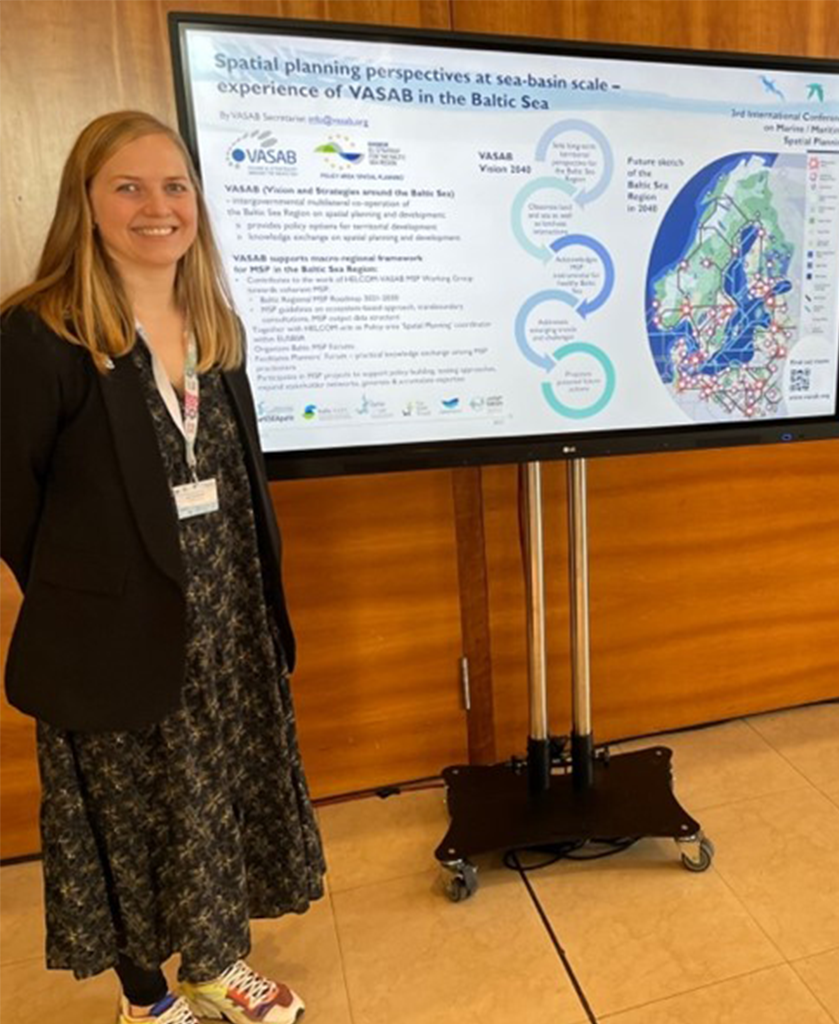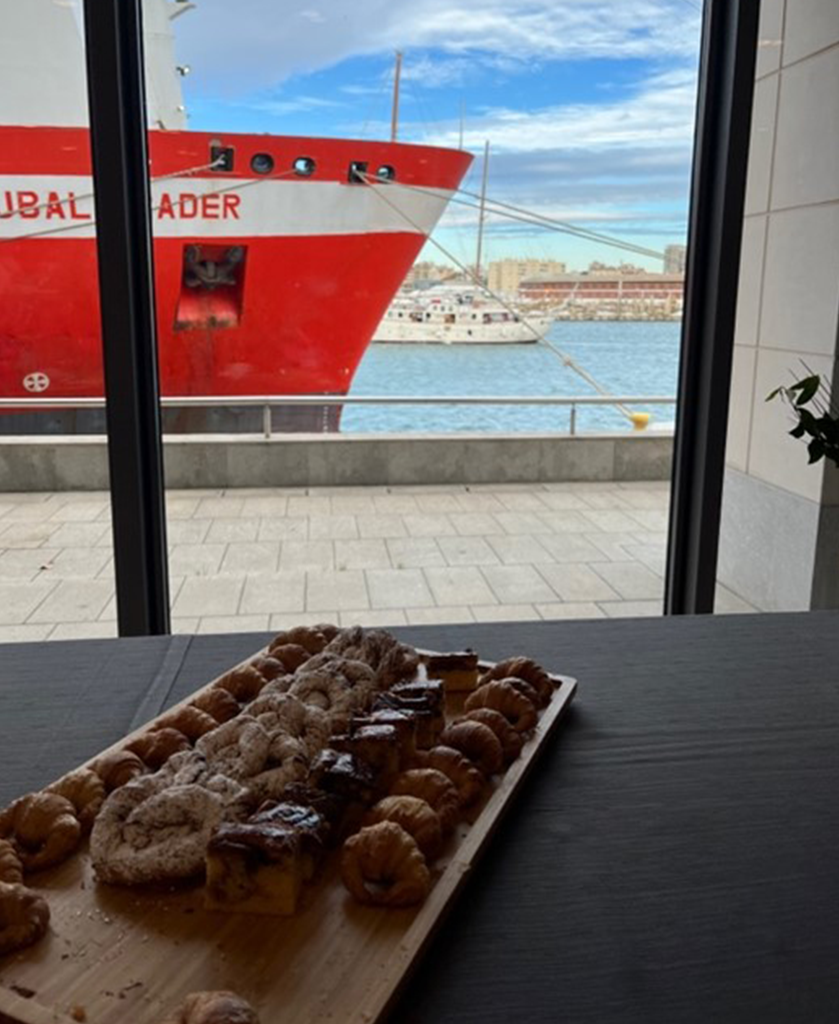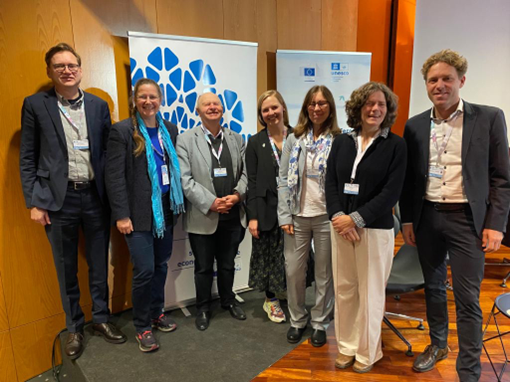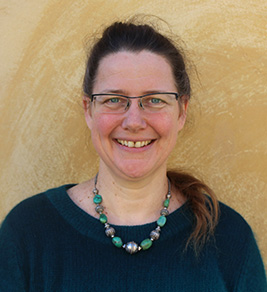Last month the global marine and coastal planning community met for three days in Barcelona, including myself, asked to inspire discussions with a keynote. The days in the World Trade Centre on the pier went fast and were filled with people, presentations, posters, and pitches – supported by lots of local pastry, tea and coffee…
The latter was an absolute necessity for an intensive global event on a broad topic such as marine or maritime spatial planning (MSP). We currently see a boost of marine planning, driven by coastal nations themselves and higher-level institutions, such as our hosts – the European Union and UNESCO.



The occasion and the reason
The combined 5th MSP Forum and 3rd MSP Conference in Barcelona launched an updated Roadmap on maritime spatial planning, running until 2027, an opportunity for our community to take stock and look forward. But let’s first take a quick look back as well.
Over the past decade coastal nations have seen an increasing need to identify and solve spatial issues in shared sea basins. A booming, boundary-crossing blue economy competing for space and increasingly serious challenges of climate change and environmental degradation emphasise the need to prioritise and promote a more sustainable use of our shared seas and shores.
In the Nordic and Baltic, regional collaborations have joined forces, with sea meeting land, through the Helsinki Convention (HELCOM) with a marine environmental perspective and Visions and Strategies around the Baltic (VASAB) coming from land-based planning. On a global level, the International Oceanographic Commission (IOC) of UNESCO is promoting knowledge and capacity development, collaborating with the EU through the MSPglobal Initiative. In Europe, the EU and its Directive on Maritime Spatial Planning and extensive funding, have been crucial to promote transboundary MSP cooperation and practice development.
In Barcelona, the two organisations presented an updated common Roadmap for knowledge, collaboration and capacity in MSP. It contains six pillars – interesting also for cross-border planners: three cross-cutting themes (knowledge support, capacity development and awareness and transboundary cooperation) and three content-related ones (climate change, protection and restoration, and sustainable blue economy).
Lessons from the Baltic and North Sea areas
My keynote covered the theme Knowledge Support for MSP – based on my role as a co-chair of an international expert group within the International Council for the Exploration of the Seas and my involvement in various projects, including our on-going project Emerging ecosystem-based Maritime Spatial Planning topics in North and Baltic Sea Regions (eMSP NBSR). A two-hour lecture had to be updated and whittled down to an informative and inspiring 10′ pitch. This was challenging, but in the end, the ideas and animations worked, and the complexity of some slides actually made a point – that the knowledge support is complex, but can be understood and managed in a structured way, given resources, capacity, organisational support and strategic guidance.
Knowledge is fundamental in planning, coming in many forms from numerous sources. Illustrated by the expanding flower of the MSPglobal logo, and the meeting itself, it can be seen as a myriad of bits of knowledge and skills in an expanding, self-organising network of people, organisations and processes. Analysing and understanding these bits and connections and identifying gaps and obstacles helps improve the network.


Promoting collaboration on MSP knowledge support
According to our observations in a chain of Baltic and North Sea MSP projects– from Baltic Scope to Pan Baltic Scope, BONUS BASMATI and now the eMSP project– cross-border collaboration and knowledge sharing evolved stepwise. Beginning with getting to know each other and the planning systems to starting to share and integrate data across sea basins. Hereby, both data and planning issues could be identified and addressed. The lessons from the projects resulted both in new projects and institutionalisation.
The Baltic Sea area, including the HELCOM-VASAB collaboration, has been exemplary and inventive in promoting MSP collaboration and sharing knowledge across boundaries, themes and levels. The collaboration was driven by common environmental and societal issues and enabled by research and development projects. It includes participation of organisations in projects but also more permanent institutionalisation and coordination through common expert working groups, a planners’ forum, roadmaps, principles, guidelines, and web portals.
Each step has its challenges, with the various pieces of knowledge needed, in a form that can be processed and shared. Here, resources – not the least provided by the EU – have been crucial. Critical is also support by the two other cross-cutting pillars – capacity development and transboundary cooperation. The documentation of this collaborative learning process by us scientists is available in various reports and papers, with new ones coming… .
Intensive information exchange amongst the MSP community
The first day with around 90 participants encompassed inspiration presentations and round table discussions in shifting groups deepening the six themes. During the following two days over 200 people filled into an even larger auditorium and were fed 90-minute sessions on the roadmap topics, with a large audience following online. The eMSP project was present in the breaks with an e-Poster and in various sessions:
- Knowledge support with Kira Gee emphasising the need for more social sciences in MSP and Tiina Tihlman reporting on Finnish experiences with scenario work.
- Capacity development with Nico Buytendijk about the community of practice approach.
- Sustainable blue economy with Nathalie Scheidegger on blue planning and the North Sea community of practice.
- Climate-smart MSP with Joacim Johannesson on Swedish MSP.
- Transboundary cooperation with Tiina Tihlmann from Finland and Bettina Käppeler from Germany and rapporteur Riku Varjopuro.
The three days went by in a blur – with lots of exchange and learning. It was great to again meet my working friends from all across the globe. Especially rewarding was to see how young talents have developed, establishing professional careers – such as former PanBalticScope Nordregio intern Sarah Mahadeo moderating the Transboundary cooperation session. Watch out for them and keep the seniors engaged too!


